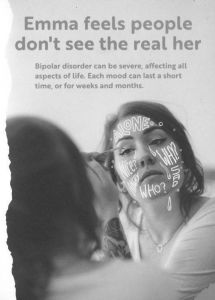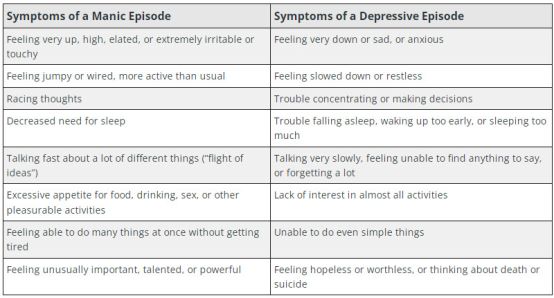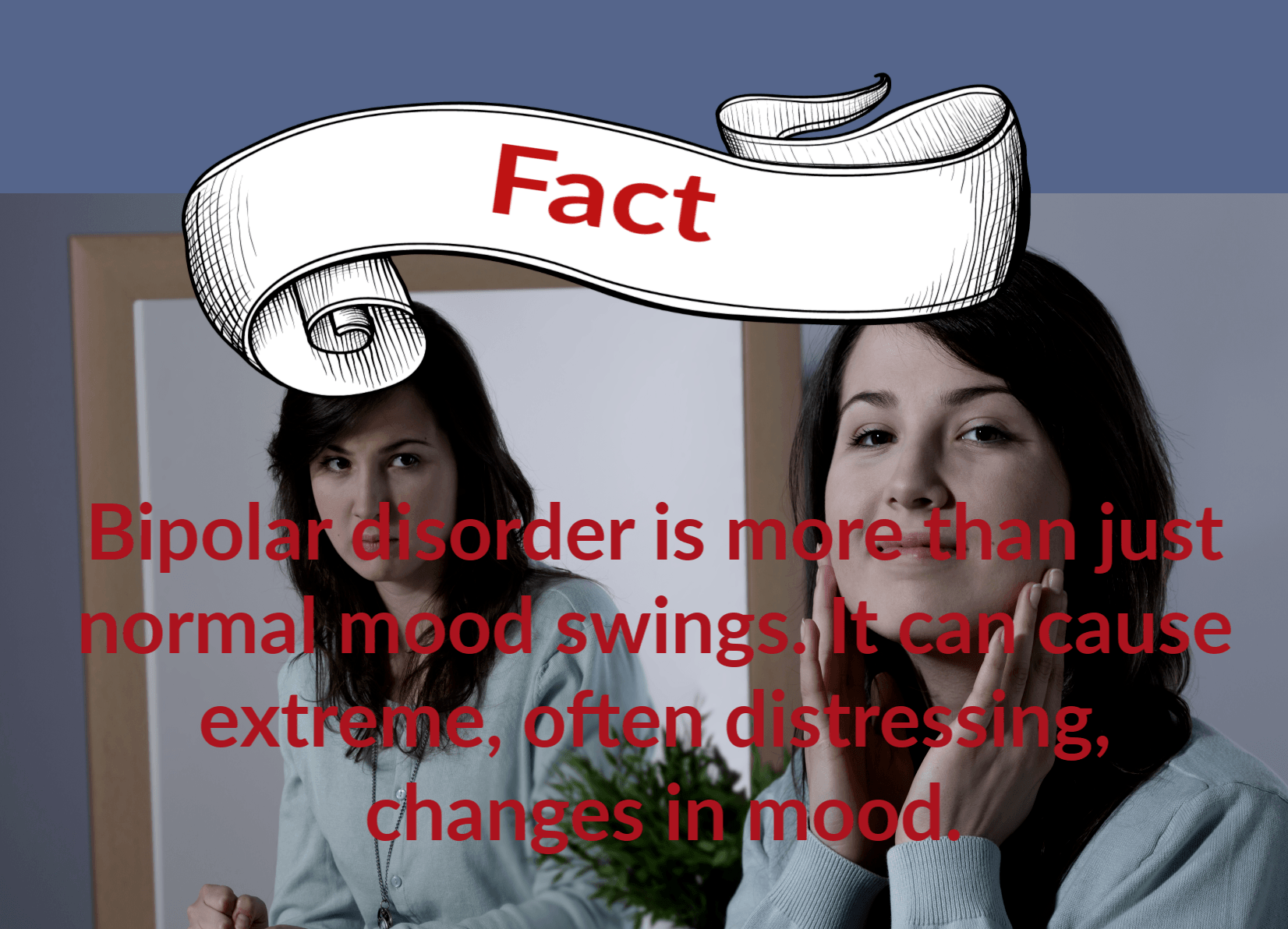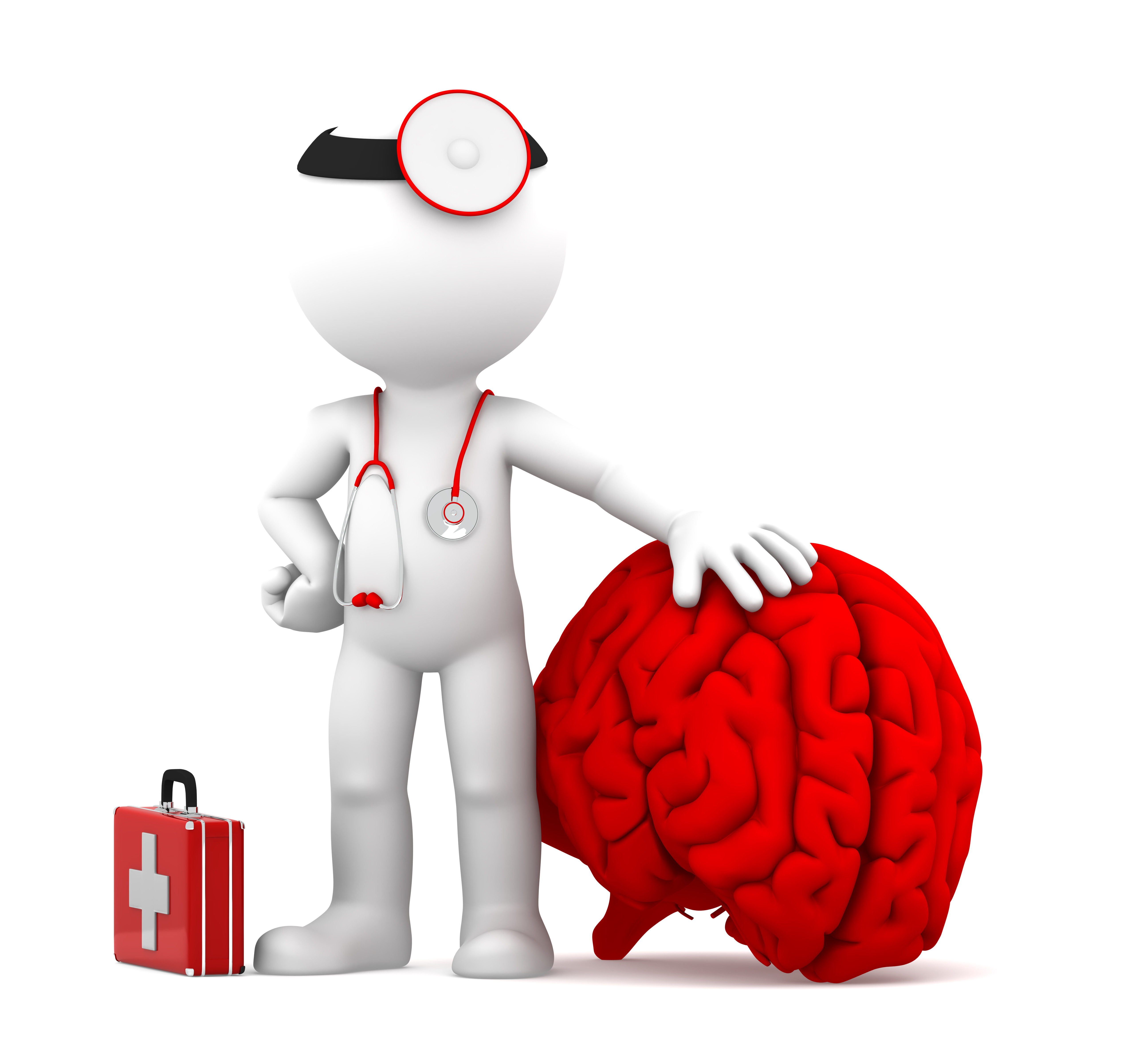Bipolar Disorder
Lesson 6
What is a Bipolar Disorder?
Have you ever wondered what exactly bipolar disorder is?
It's a term that we often hear, but many people don't fully understand the condition and its impact on individuals.
The term "bipolar" refers to the two polar opposite states of mood experienced by individuals with this disorder - the manic phase, characterised by heightened energy, euphoria, and impulsivity, and the depressive phase, marked by feelings of sadness, hopelessness, and low energy.
Let's explore what bipolar disorder is to gain a deeper understanding of this often misunderstood condition. Therefore, Bipolar disorder, or manic-depressive illness, depicts the extremes in mood that produce a "bipolar" cycle and is a somewhat common mental health condition that affects a person's mood, energy, and ability to function. It is characterised by episodes of extreme highs (mania or hypomania) and lows (depression). These episodes can last for days, weeks, or even months and can be severe enough to interfere with daily life.
Bipolar disorder can be severe, affecting all aspects of life. Each mood can last a short time, or for weeks and months, with your mood changing dramatically - from feeling very depressed, to being over-active (also called mania).
SEE THE SIGNS
- Feeling sad or irritable
- Lack of energy or interest in life
- Sleeping and eating less or more
- Low self-esteem
- Losing interest in sex
- Thoughts of self-harm or suicide
- Feeling energetic or restless
- Irritability
- Talking quickly
- Making impulsive decisions
- Being sexually promiscuous
- Being argumentative or aggressive

It is estimated that around 2.6% of the adult population in the United States alone has been diagnosed with bipolar disorder at some point in their lifetime.
However, it is noteworthy to mention that the prevalence and diagnosis rates can vary across different populations and countries.
It is crucial to seek professional help and guidance to diagnose and treat bipolar disorder accurately.

Types of Bipolar Disorder
There are several types of bipolar disorder, each characterised by different patterns of mood swings and episodes.
Bipolar I disorder is the most severe form, with individuals experiencing manic episodes that can last for at least a week and often require hospitalisation. Depressive episodes may also occur.
Bipolar II disorder involves less severe manic episodes, known as hypomania, and more frequent depressive episodes.
Cyclothymic disorder is a milder form of bipolar disorder, with individuals experiencing numerous periods of hypomania and mild depressive symptoms for at least two years.
Other specified bipolar and related disorders include those that do not fit the specific criteria for the types mentioned above, but still exhibit symptoms of bipolar disorder.
The particular type of bipolar disorder an individual has can impact treatment options and management strategies.
Hypomanic Episode
A hypomanic episode is characterised by less severe manic symptoms that need to last only four days in a row rather than a week. Hypomanic symptoms do not lead to the major problems in daily functioning that manic symptoms commonly cause.
When someone is experiencing both psychotic and mood symptoms at the same time, it can be difficult to determine what they are experiencing and how best to understand and classify these experiences from either a Bipolar or Psychosis experience similar to schizophrenia.
Symptoms of Bipolar Disorder
The symptoms of bipolar disorder vary depending on the type and severity of the episode. During a manic episode, a person may experience elevated or irritable mood, increased energy, decreased need for sleep, racing thoughts, grandiosity, impulsivity, and risky behaviour. During a depressive episode, a person may experience feelings of sadness, hopelessness, worthlessness, fatigue, loss of interest in activities, and thoughts of suicide.
Causes of Bipolar Disorder
Genetic Factors:
Bipolar disorder tends to run in families, suggesting a genetic heredity component. Studies have identified several genes involved in developing bipolar disorder, but not a single gene can cause the condition.
Environmental Factors:
Stressful life events, such as trauma, loss, or abuse, can trigger the onset of bipolar disorder in some people.
The exact cause of bipolar disorder is unknown, but research suggests that it combines genetic, environmental, and brain chemistry factors.
Brain Chemistry
Brain chemistry in bipolar refers to the complex and intricate balance of neurotransmitters and chemicals within the brain that regulate mood and behaviour in individuals suffering from bipolar disorder. This delicate equilibrium, involving neurotransmitters like serotonin, dopamine, and norepinephrine, plays a crucial role in the manifestation of bipolar symptoms, including manic episodes, depressive episodes, and fluctuations between these contrasting mood states. Therefore, the chemical imbalances can potentially lead to mood swings, shifts in energy levels, and other symptoms associated with a bipolar disorder.

Treatment
You can be prescribed antidepressants or mood stabilisers. You might also benefit from cognitive behavioural therapy, or psycho-education, to help you learn about managing the symptoms. If you have any symptoms described on this page, it's a good idea to talk to your GP.
Treatment for bipolar disorder typically involves a combination of medication and psychotherapy. Common medications for bipolar disorder include mood stabilisers, antipsychotics, and antidepressants. Psychotherapy can help people manage their symptoms and learn coping skills to manage their condition better.
Medications
Medications, such as mood stabilisers, antipsychotics, and antidepressants, can help manage the symptoms of bipolar disorder and prevent relapse.
Medications known as “mood stabilisers” (e.g., lithium) are the most commonly prescribed type of medications for bipolar disorder.
Psychotherapy
Psychotherapy, such as cognitive-behavioural therapy (CBT), interpersonal therapy (IPT), and mindfulness based CBT can help individuals with bipolar disorder manage their symptoms, improve their relationships, and develop coping strategies.
In some cases, when medication and psychotherapy have not helped, an effective treatment known as electroconvulsive therapy (ECT) may be used.
Lifestyle Changes
Making lifestyle changes can also help manage bipolar disorder. This includes regular exercise, sustaining a healthy diet, and avoiding alcohol and drugs. Getting enough sleep and establishing a regular sleep schedule is also essential.
Additionally, staying connected with family and friends and seeking social support is necessary.
Support Systems
Support systems, such as therapy groups, peer support groups, and online forums, can provide individuals with bipolar disorder with a sense of community and understanding.

Coping With Bipolar Disorder
Living with bipolar disorder can be difficult, but some strategies can help. These include recognising signs of an impending manic or depressive episode, seeking help, and developing healthy coping skills. It is also important to remember to take care of yourself and practice self-compassion.
Diagnosing Bipolar Disorder
Diagnosing bipolar disorder can be challenging because it often involves complex symptoms. However, there are several methods that healthcare professionals use to diagnose the condition.
The Diagnostic and Statistical Manual of Mental Disorders (DSM5)
The DSM5 is a manual healthcare professionals use to diagnose mental health conditions. It outlines the criteria for diagnosing bipolar disorder based on the presence and severity of symptoms.
Medical and Psychiatric Evaluation
A medical and psychiatric evaluation involves a physical exam, blood tests, and a mental health assessment to rule out other medical conditions and determine the presence of bipolar disorder.
Screening Tests
Screening tests, such as the Mood Disorder Questionnaire (MDQ) and the Bipolar Spectrum Diagnostic Scale (BSDS), can help identify the presence of bipolar disorder and its severity.
Bipolar Disorder and Co-Occurring Conditions
Bipolar disorder often co-occurs with other mental health conditions, such as substance abuse, anxiety, and eating disorders.
Substance Abuse
Substance abuse is a common co-occurring condition with bipolar disorder. Individuals with bipolar disorder need to seek treatment for both conditions simultaneously. Anxiety Disorders
Anxiety disorders are common co-occurring conditions with bipolar disorder. It is important to seek treatment for both states to manage symptoms effectively.
Eating Disorders
Eating disorders are also common co-occurring conditions with bipolar disorder. It is important to seek treatment for both disorders to reduce symptoms and improve overall health.
Self-Care
Self-care is influential for individuals with bipolar disorder and co-occurring conditions. Taking time to relax, engaging in physical activity, and maintaining a healthy diet can help individuals manage their symptoms and reduce stress.
Support Systems
Support systems are essential for individuals with bipolar disorder and co-occurring conditions. It is important to contact family and friends for support and to access professional help if needed.
Anxiety Disorders
Anxiety disorders like generalised anxiety disorder (GAD) and panic disorder often co-occur with bipolar disorder. Treatment for both conditions may involve medication and therapy.
Eating Disorders
Eating disorders, such as anorexia nervosa and bulimia nervosa, often co-occur with bipolar disorder. Treatment for both conditions may involve medication, therapy, and nutritional counselling.
Helping Someone with Bipolar Disorder
If you know someone with bipolar disorder, you can support them in several ways.
Understanding Their Experience
Please educate yourself about bipolar disorder and its symptoms to better understand what your loved one is going through.
Supporting Their Treatment
Encourage your loved one to seek treatment and support them in their journey towards recovery.
Taking Care of Yourself
Supporting someone with bipolar disorder can be challenging, so taking care of your mental health and seeking support when needed is significant.
Stigma and Discrimination
Stigma and discrimination surrounding mental health can make it difficult for individuals with bipolar disorder to seek help and receive appropriate treatment. Challenging these attitudes and advocating for mental health awareness and acceptance is essential. It is important to remember that recovery from bipolar disorder is possible and that individuals can lead healthy, fulfilling lives.
It is also important to seek help from healthcare professionals and develop a treatment plan tailored to the individual's needs. Additionally, practising self-care and using coping strategies to manage symptoms and reduce stress is important.
Furthermore, building a support system and reaching out to family and friends for help is crucial. Lastly, it is necessary to challenge the stigma and discrimination surrounding mental health and advocate for awareness and acceptance.
Conclusion
Bipolar disorder is a complex mental health condition affecting millions worldwide. It is characterised by extreme mood swings, ranging from episodes of mania to periods of depression, with varying intensities. These mood swings can significantly impact a person's daily life, relationships, and overall well-being.
With the proper treatment and support, individuals with bipolar disorder can manage their symptoms and improve their quality of life. If you or someone you know is struggling with bipolar disorder, seek help from a healthcare professional.
Remember, there is hope for managing bipolar disorder.
Therefore, it is essential to remember that recovery from bipolar disorder is possible and that individuals can lead healthy, fulfilling lives. Understanding bipolar disorder is significant for those who may be personally affected and society as a whole.
Increasing awareness and knowledge can create a more compassionate and supportive environment for individuals with bipolar disorder and reduce the stigma.

